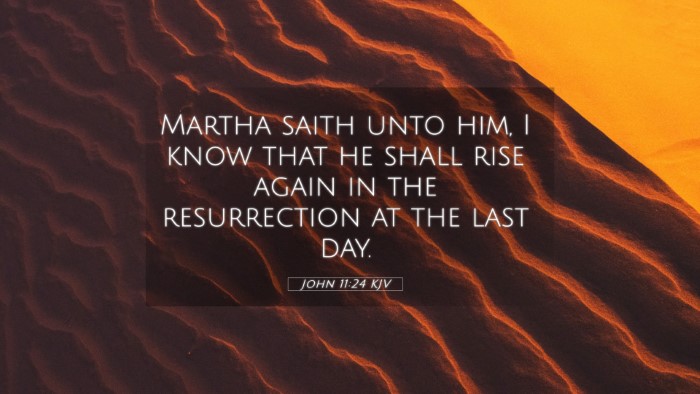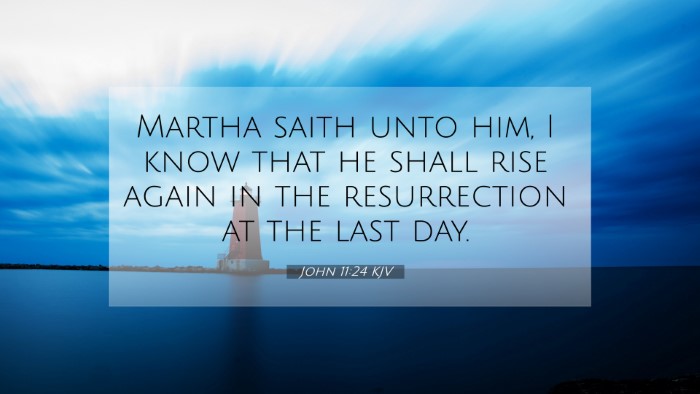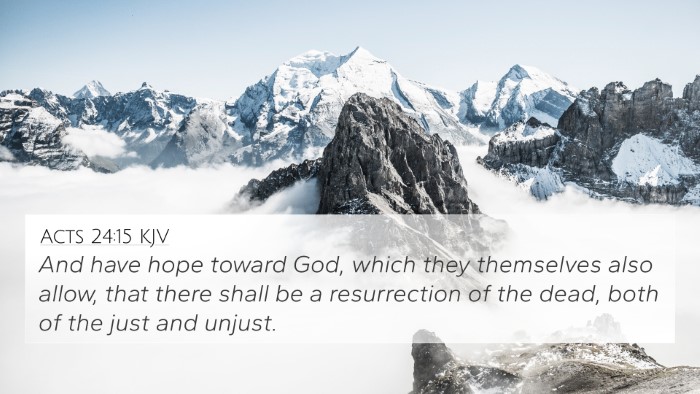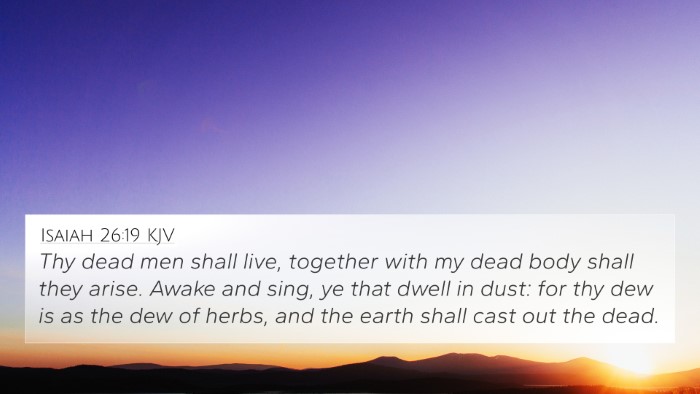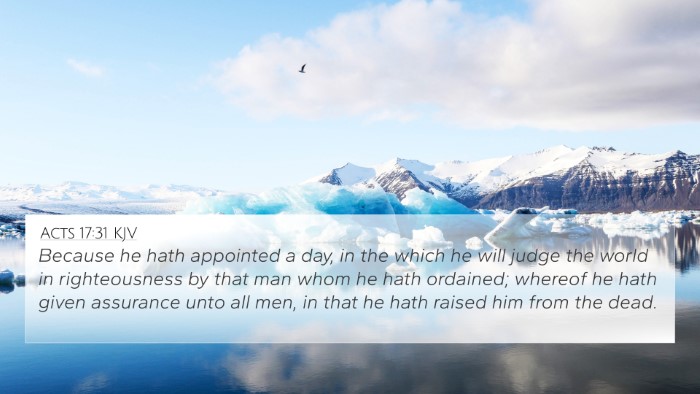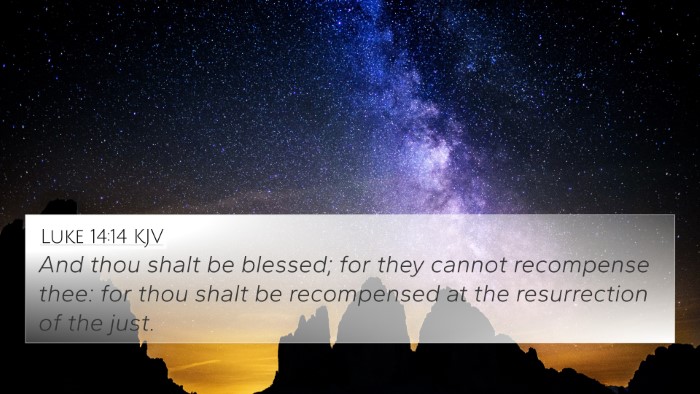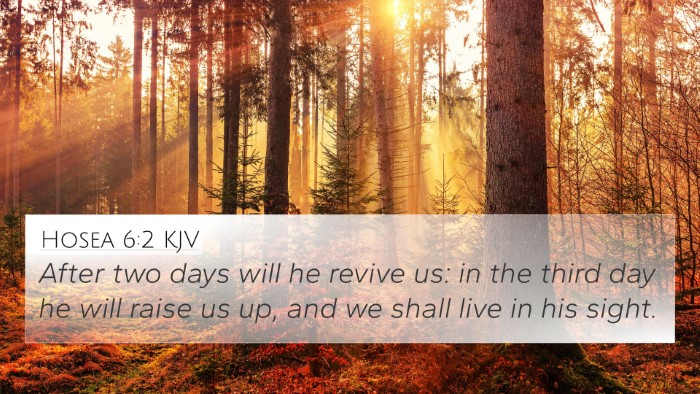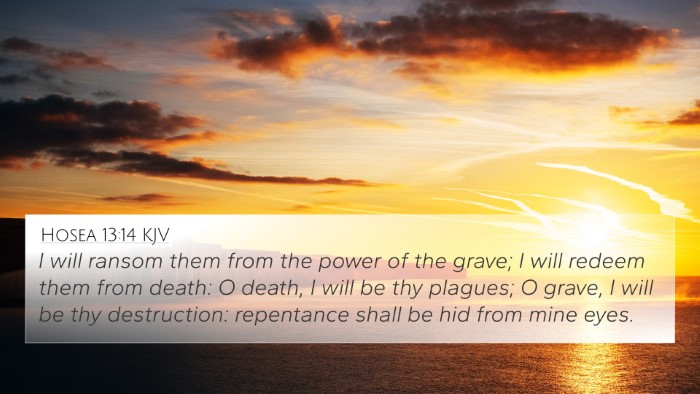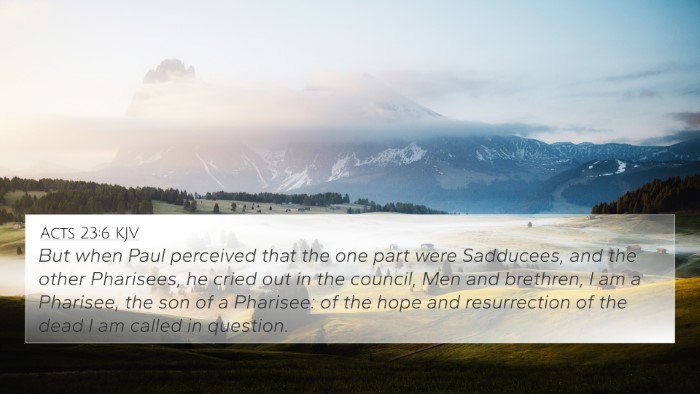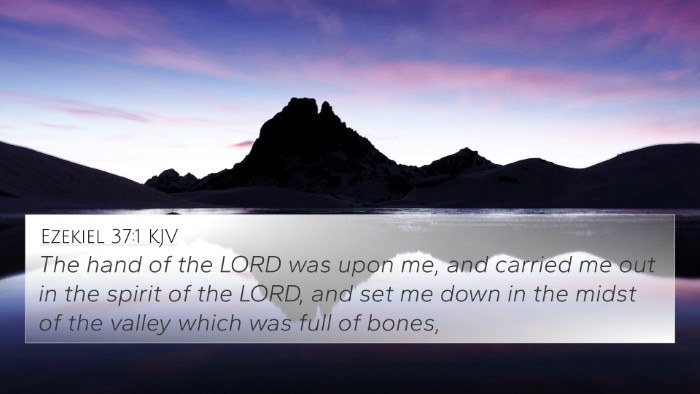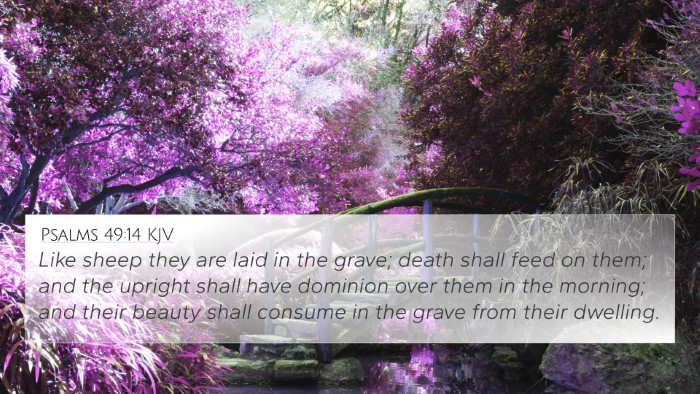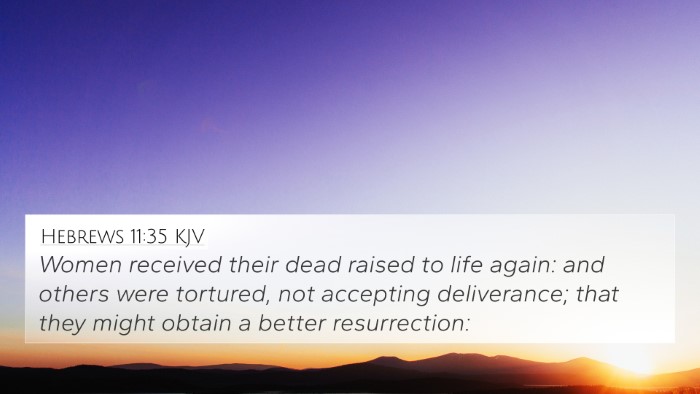John 11:24 Meaning and Interpretation
In John 11:24, Martha expresses her belief in the resurrection, stating, "I know that he will rise again in the resurrection at the last day." This indicates her understanding of the concept of resurrection, a key doctrine in Christian theology. The verse encapsulates a profound moment in the narrative where Martha engages with Jesus about her brother Lazarus' death, revealing her faith amidst grief.
Contextual Understanding
To fully grasp the significance of this verse, it is essential to consider the surrounding context. Jesus had come to Martha and Mary after the death of Lazarus, a significant event that demonstrated His authority over death and foreshadowed His own resurrection. Commentators emphasize the dual nature of Martha's faith: she believes in a future resurrection yet struggles with the present reality of loss.
- Matthew Henry's Commentary: Henry highlights that Martha acknowledges the resurrection as a future event, indicating her foundational Jewish belief in life after death. He points out her faith amid sorrow, showcasing the tension between human emotions and divine promises.
- Albert Barnes' Notes: Barnes focuses on the hope found in Martha's declaration. He notes that her statement reflects a common hope among the Jews of her time regarding resurrection, which was a prevalent belief detailed in Jewish texts.
- Adam Clarke's Commentary: Clarke notes the importance of Martha’s statement as it conveys her belief in Jesus as the Messiah who holds power over life and death. He stresses that her faith, while sincere, is limited compared to the fuller revelation of Jesus’ power over death that is about to be demonstrated.
Thematic Bible Verse Connections
John 11:24 can be linked to several other scriptures that resonate with the themes of resurrection and eternal life. Understanding these connections provides deeper insight into the message of hope within the Bible.
- John 5:28-29: Jesus speaks of a time when all who are in their graves will hear His voice and come out, highlighting the resurrection of life.
- Romans 8:11: This verse explains that the Spirit of God who raised Jesus from the dead will also give life to our mortal bodies, reinforcing the promise of resurrection.
- 1 Thessalonians 4:16: Paul assures believers that they will be resurrected, connecting to Martha’s expectation of future resurrection.
- Revelation 20:12-13: These verses describe the final judgment, where the dead are raised, linking to the idea of resurrection found in John 11:24.
- Job 19:25-26: Job expresses a belief in his future Redeemer and sees a resurrection, which parallels Martha’s faith.
- Isaiah 26:19: Isaiah speaks about the resurrection of the dead, linking Old Testament hopes to New Testament realities.
- John 20:9: Refers to the disciples' understanding of the resurrection after Christ’s death, a fulfillment of the hope expressed by Martha.
- Philippians 3:10-11: Paul desires to know Christ and the power of His resurrection, mirroring Martha’s belief in resurrection.
Cross-Referencing Biblical Texts
Cross-referencing biblical texts provides valuable insights into the doctrines and themes that bind the scriptures together. In studying John 11:24, one can use various tools for cross-referencing, including:
- Bible Concordance: A comprehensive tool that assists in locating verses related to specific words and themes.
- Bible Cross-Reference Guide: Helps in identifying related scriptures, providing thematic links between various passages.
- Cross-Reference Bible Study: A method of studying the Bible by exploring interconnected passages, fostering deeper comprehension.
- Bible Reference Resources: Resources that offer cross-referencing systems for easier navigation and study.
Conclusion
John 11:24 serves as a crucial verse in understanding the Christian hope of resurrection and eternal life. Through careful examination of the verse and its connections with other scriptures, believers can find reassurance in their faith. This verse, with its profound implications and connections, invites further study into the themes of resurrection and the nature of Jesus as the life-giving Messiah.

